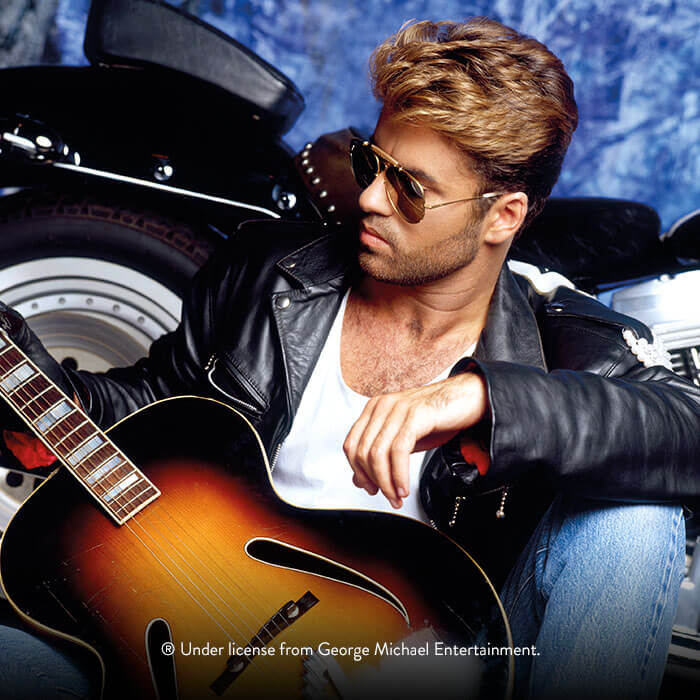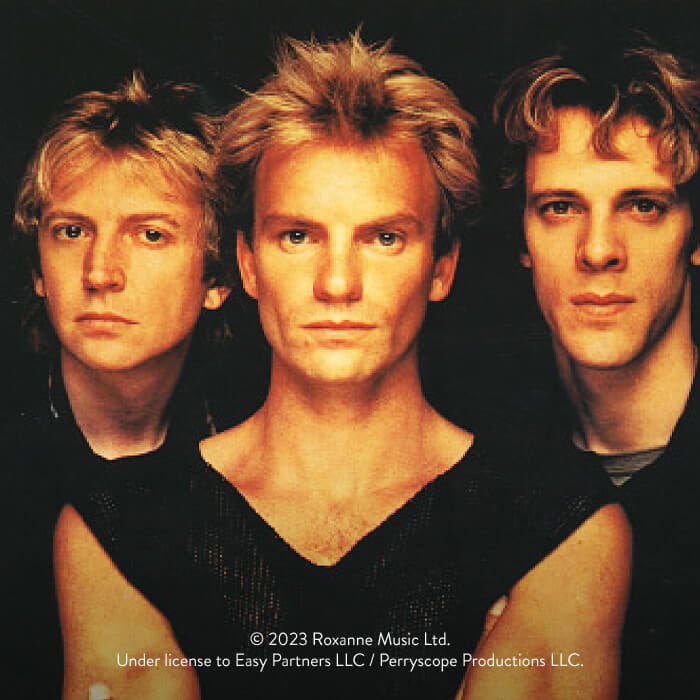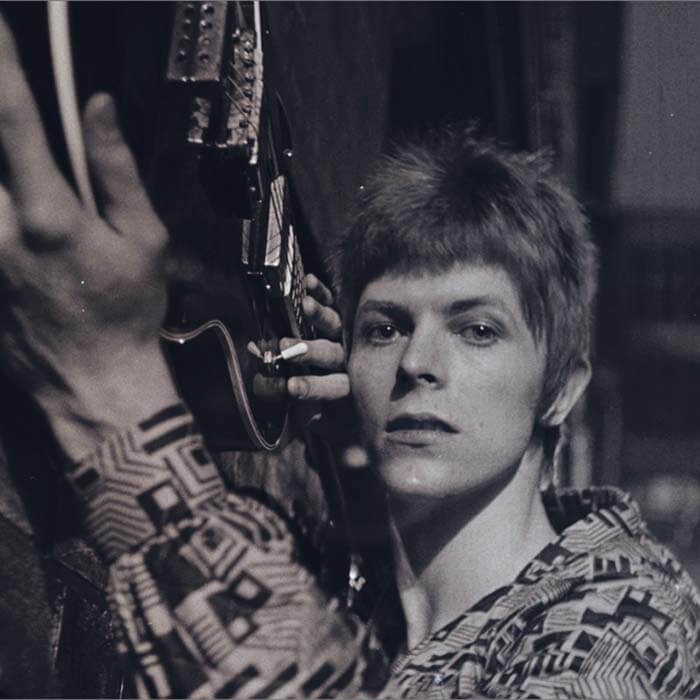From humble beginnings to iconic status, this is the story of Queen, charting their journey to the top and their everlasting legacy.
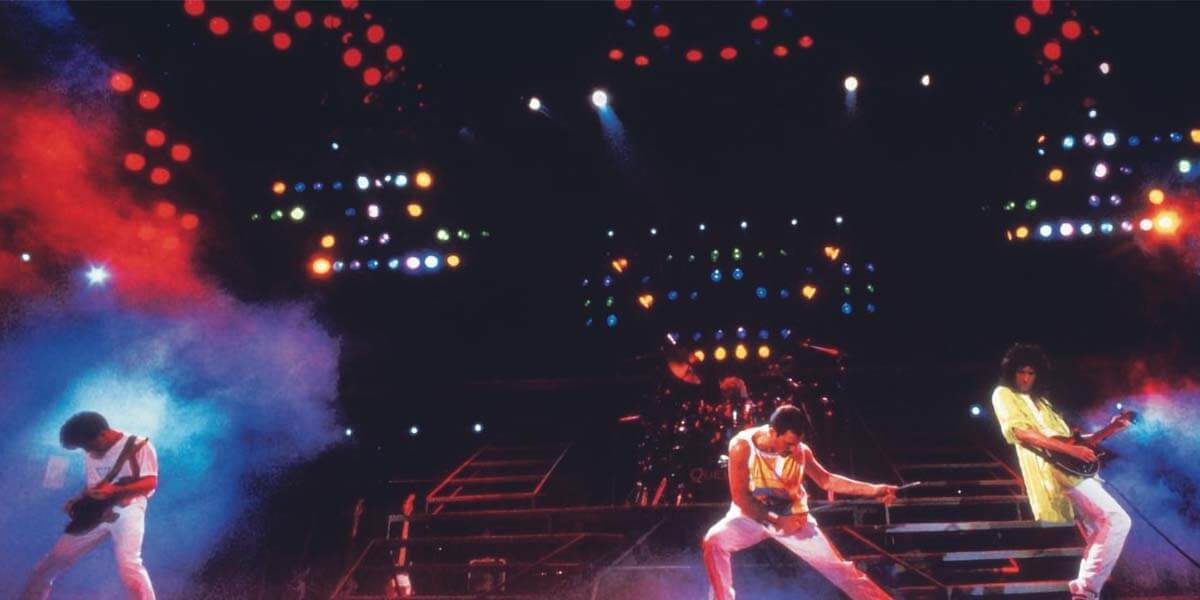
A Powerhouse of the Music Industry
Since the 1960s, Britain has been an undeniable powerhouse of the global music industry, producing a myriad of music legends across multiple genres. From iconic bands to unforgettable solo artists, the United Kingdom has been a pre-eminent breeding ground for some of music’s most memorable acts.
One group that personifies Britain unlike any other is Queen. Featuring an ensemble of multitalented musicians and fronted by one of music’s most charismatic showmen, the unforgettable four-piece crossed boundaries, borders and barriers, and transcended their craft.
We Will Rock You
Whilst the arrival of British bands like The Beatles, The Rolling Stones and The Who in the 1960s revolutionised popular music throughout the Western world, only two of those bands made it into the next decade.
Nevertheless, as one star diminished another ignited and Led Zeppelin began their rise to rock royalty. The success of their heavier sound paved the way for a myriad of new stars to emerge, including the likes of prog rock linchpins Pink Floyd, Yes and Genesis.
This experimental new direction continued with the subsequent rise of glam rock, popularised by pioneers such as David Bowie and Marc Bolan. Elton John took this a step further, incorporating various glam rock elements into his act and embracing the flamboyant eccentricities of the genre.
Tying together these extravagant presentations with the revolutionary sounds of 1970s rock was a band waiting to break free – a little known outfit from London fronted by one Farrokh Bulsara, soon to be known the world over as the unmistakable Freddie Mercury.

Don’t Stop Me Now
Christened with the name ‘Queen’ in 1970, the band’s eponymous first album landed in July 1973, unveiling Mercury’s incomparable vocals, Brian May’s unmistakable guitar sound and the band’s overall energy.
The band quickly followed up with Queen II just eight months later, peaking at a respectable number 24 in the UK album charts. Gaining them national attention as a result, Queen’s infusion of heavy metal, prog rock sound and glam rock was fresh and exciting.
Sheer Heart Attack in 1974 saw the band narrowly miss out on their first UK number one single with ‘Killer Queen’, but they didn’t have to wait long to taste the top spot, achieving that feat just a year later with the now legendary ‘Bohemian Rhapsody’.
Their impact over the next decade is virtually unparalleled, with numerous number one singles and multiple bestselling albums around the world. With their popularity at an all-time high, the band reached their zenith in 1985, with their career-defining performance at Live Aid in front of 72,000 adoring fans in Wembley Stadium.
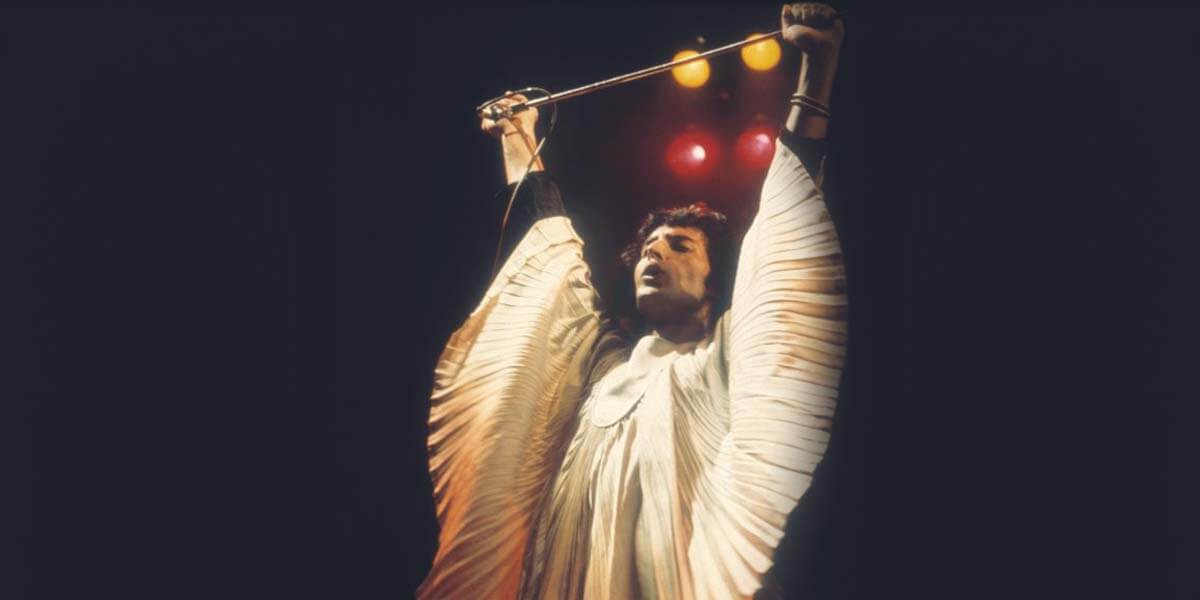
Only the Good Die Young
Queen continued their dominance throughout the remainder of the 1980s and early 1990s with three successive UK number one albums – A Kind of Magic, The Miracle and Innuendo, which all achieved commercial and critical success.
Tragically, Queen’s momentum came to an abrupt halt in 1991 when Mercury passed away following a lengthy battle with AIDS, ending the quartet’s journey and shocking the music world to its core.
Somebody to Love
Broadcast live to 76 countries around the world, a tribute concert to the fallen frontman took place in April 1992 as a means of raising awareness of AIDS.
The show featured a variety of popular performers, some of whom were friends of Mercury, including UK legends Elton John and David Bowie. Many of the acts had also been directly influenced by Queen, including George Michael, Metallica and Guns N’ Roses.
The money raised from the concert went on to fund the foundation of The Mercury Phoenix Trust, aimed at combating HIV and AIDS worldwide. Three decades later, the trust is still going strong, helping millions affected by HIV and AIDS around the world.
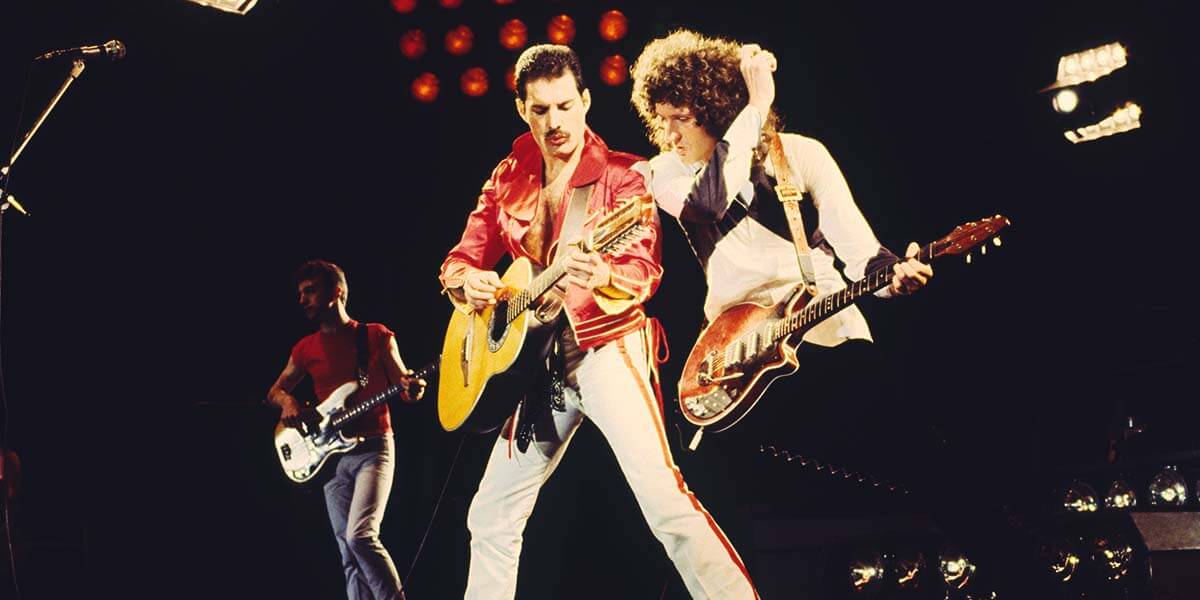
Made in Heaven
Whilst the band’s output since Mercury’s death in 1991 has largely been contained to greatest hits packages and collections of previously unreleased material, the band have released two studio albums without the frontman.
Featuring posthumous vocals from the departed frontman himself, the first came in 1995 with the aptly titled Made in Heaven. The return topped album charts around the world and produced six singles, including ‘Heaven for Everyone’ and the Freddie-fronted version of ‘Too Much Love Will Kill You’, previously released by Brian May as a solo single.
The single ‘No-One But You (Only The Good Die Young)’ notably appeared on 1997’s Queen Rocks compilation. A tribute to Mercury by the remaining three members, the release marked John Deacon’s swansong, as he retired from music altogether shortly after.
The Show Must Go On
Following Deacon’s departure, original material took a backseat for over a decade. Queen returned to the studio in 2008 following a successful world tour with Paul Rodgers. With Rodgers providing lead vocals, bass duties were shared between Brian May and their new guest frontman.
Today, Queen are still very active in the music business, particularly on the touring circuit. Since teaming up with Adam Lambert in 2012, the band has toured extensively, providing fans all over the world with the chance to feel the Queen magic in person.
Winning four Academy Awards®, two BAFTAs and two Golden Globes, the success of the Bohemian Rhapsody movie in 2018 reignited the world’s fascination with Queen. The masterful biopic caused a resurgence in the band’s popularity, introducing the magic of Queen to a whole new generation of fans.
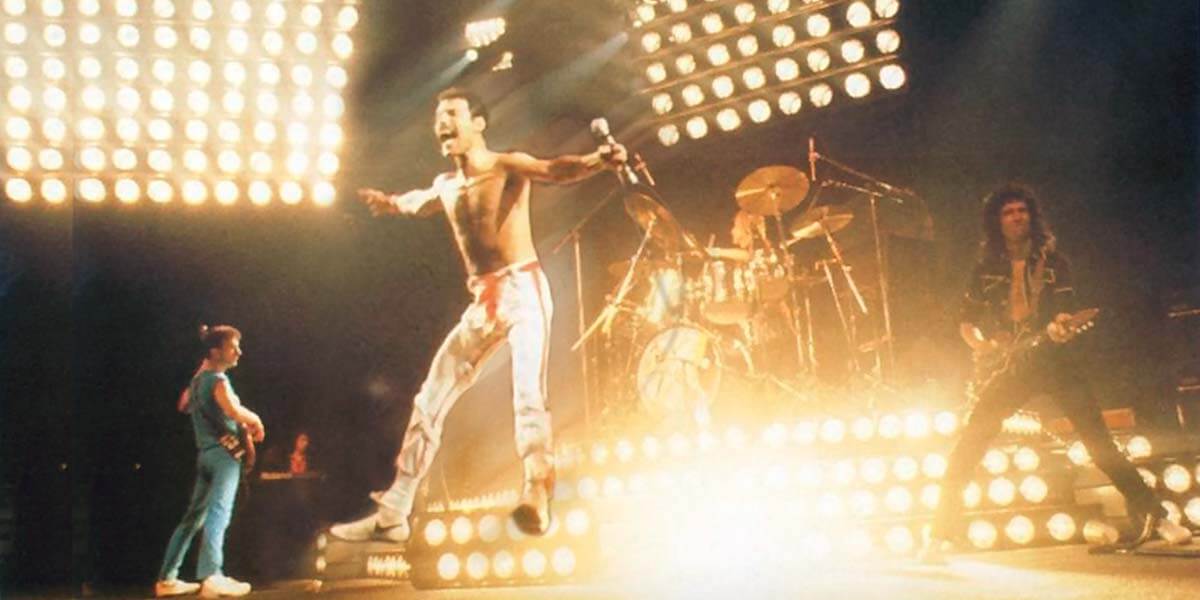
Staying Power
Whilst the loss of Freddie Mercury will long be remembered as one of music’s greatest tragedies, the band’s legacy lives on and the impact of Queen is still being felt to this very day. From Robbie Williams and Lady Gaga to Radiohead and The Darkness, Queen’s influence has paved the way for a myriad of performers and helped shape the careers of countless more.
As well as being influential musical performers, many have applauded Queen for their innovatory impact on the industry as a whole. Perhaps most notably, their music video for ‘Bohemian Rhapsody’ is widely regarded as a revolutionary contribution to the medium, pre-dating MTV by several years and altering the way artists approached music video.
Additionally, the energy and vigour of ‘Stone Cold Crazy’ from Sheer Heart Attack is often cited as a fore-runner to the NWOBHM (New Wave of British Heavy Metal) genre that emerged in the UK the following decade, popularised by the likes of Iron Maiden and Judas Priest.
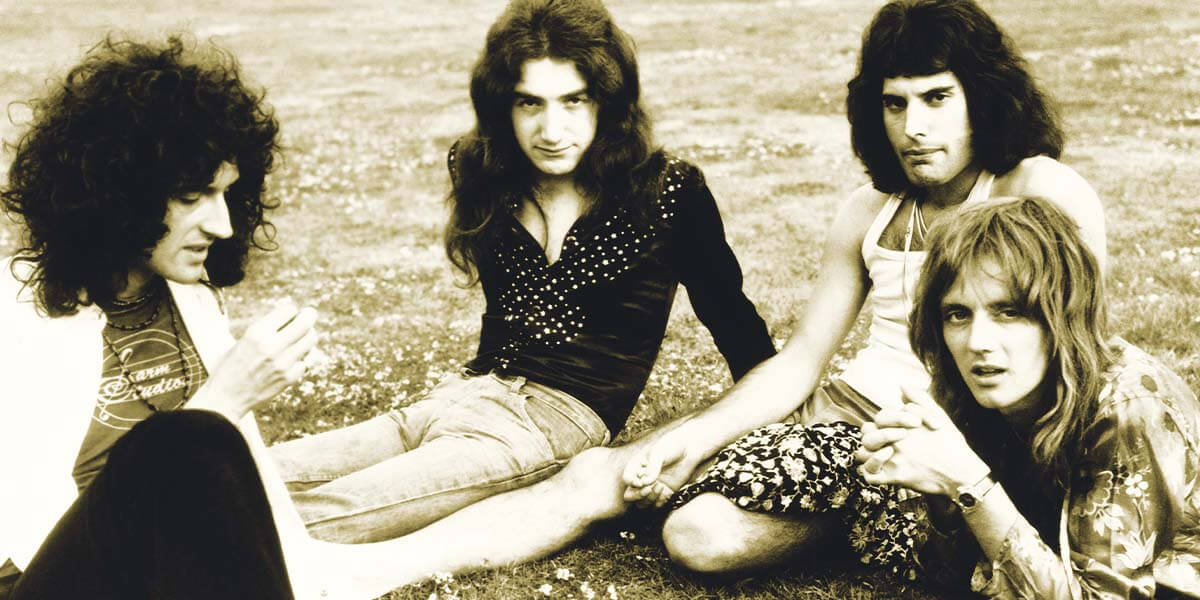
Queen Forever
Despite garnering worldwide acclaim, Queen have remained a quintessentially British band and have never lost their identity as a product of England, so much so that the band would traditionally end each concert with their own rendition of God Save the Queen. Brian May memorably performed this version atop Buckingham Palace in 2002 as part of the ‘Party at the Palace’ celebrations for the Golden Jubilee of Her Late Majesty Queen Elizabeth II.
Legendary Status
Synonymous with Britain, Queen was chosen as one of the acts to perform at the closing ceremony of the London 2012 Olympic Games. A national celebration of all things British, the Queen segment featured pre-recorded footage of the inimitable Freddie Mercury as part of the performance, reiterating the band’s impact on the nation and the UK’s affinity for the departed singer.
Perhaps most telling of all, Queen’s Greatest Hits album remains the bestselling album in UK history, going platinum an astounding 21 times. With sales clocking in at well over 6 million, the album has outsold some of the biggest names in musical history, fending off competition from the likes of ABBA, The Beatles and Adele.
With critical acclaim, a global fan base and legendary status, Queen continues to break new ground to this very day. Half a century after their formation in the early 1970s, Queen made history once again and became the first band that The Royal Mint honoured on an official UK coin.

